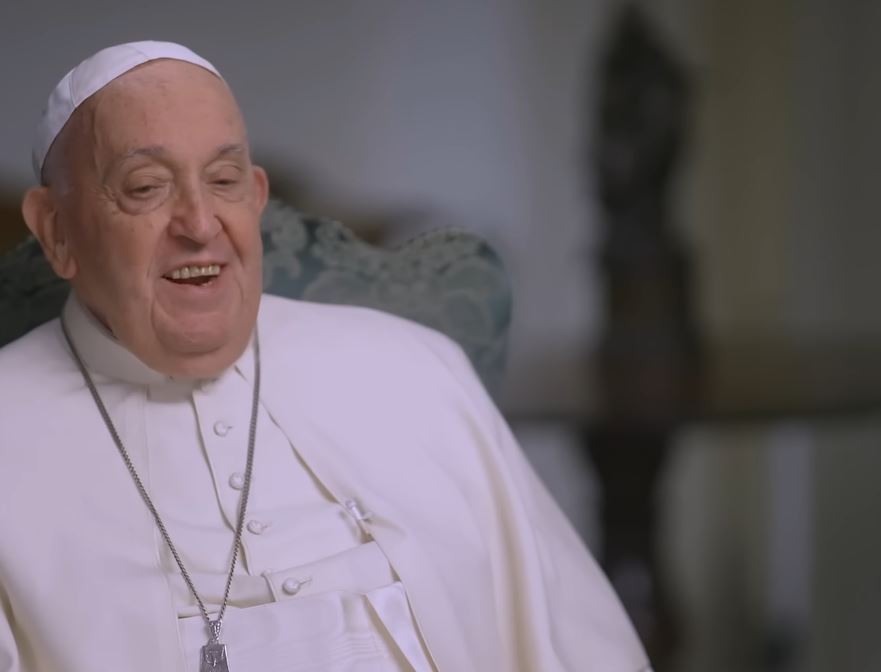From the streets of Buenos Aires to the Vatican, Pope Francis—who was born Jorge Mario Bergoglio—carved out an extraordinary journey. However, there was a love story that could have changed the entire trajectory of his life before he was elected as the first Latin American Pope. Jorge fell deeply in love with Amalia Damonte when he was just twelve years old. If their relationship had been successful, it might have led him to leave the priesthood and enter into a married life.
Young Jorge fell in love with Amalia, a neighbor in Buenos Aires’ peaceful Flores neighborhood, for the first time. Playing in the streets and connecting over straightforward, sincere interactions helped them grow closer. Even though their bond grew stronger, it was doomed to end prematurely. In a letter to Amalia, the young Jorge boldly declared, “If I don’t marry you, I will become a priest,” out of pure devotion. He felt that she was the person he would spend the rest of his life with, and his heart was set on a future with her. However, fate had other ideas, as is frequently the case with love in youth.
| Personal Information | Details |
|---|---|
| Full Name | Jorge Mario Bergoglio (Pope Francis) |
| Date of Birth | December 17, 1936 |
| Place of Birth | Buenos Aires, Argentina |
| Known As | Pope Francis |
| Career Highlights | 266th Pope of the Catholic Church, First Latin American Pope |
| Pre-Papacy Life | Jesuit Priest, Archbishop of Buenos Aires, Cardinal |
| Childhood Sweetheart | Amalia Damonte |
| Key Quote | “If I don’t marry you, I will become a priest.” |
| Death | April 21, 2025 (Age 88) |
In a surprising turn of events, Amalia turned down Jorge’s proposal even though she liked him. She was rejected for a variety of reasons. Her parents’ intervention was crucial since they believed that their young daughter’s romantic involvement was unsuitable for her age. Their once hopeful romance came to a sudden end when Amalia was prohibited from seeing Jorge ever again.
Despite being painful, this heartbreak led Jorge to pursue spiritual fulfillment. Shortly after being rejected, he fulfilled his promise and accepted the call to the priesthood. He began the path that would eventually lead him to the papacy by being ordained as a priest just days before his 33rd birthday. He dedicated himself to the faith he so fervently embraced, finding comfort and meaning in serving the Church, even in the face of his intense love for Amalia.

He would frequently think back on his early years, including his early love for Amalia, in his later years as Pope Francis. He talked about how his strong, unmet desire for marriage led him to seek out the Church and its teachings after being rejected. His love for Amalia and his devotion to God created a papacy that aimed to instill humility and compassion in a world that needed both.
For her part, Amalia never lost sight of her memories of Jorge. She followed his journey from a distance after he rose in the Church and was elected Pope. She was extremely proud and shocked when he was named Pope in 2013. “I froze in front of the television,” she said in an interview. The fact that Jorge was the Pope astounded me! Despite not being returned, her love for him remained a constant in her heart. Admiring the transformation of the boy she knew into the spiritual leader of more than a billion Catholics, she watched.
Pope Francis made a deliberate choice to live simply rather than in the opulence typically associated with the Vatican, earning him a reputation for humility during his pontificate. He frequently forewent the ceremonial luxuries that came with his position, preferring a guesthouse to the lavish papal apartments. His selfless actions, such as washing the feet of migrants and prisoners, earned him the moniker “Pope of the Slums.”
However, he disagreed with many traditionalists because of his strong opinions on social justice, climate change, and the need for Church reform. His pontificate turned into a delicate balancing act between action, controversy, and compassion. Pope Francis never strayed from the principles that molded him as a young man, principles that were partly influenced by his love for Amalia, despite all the complications and difficulties he encountered.
Pope Francis never lost sight of his first love, even after all these years. He admitted in their last talks before he passed away that if Amalia had decided to wed him, his life might have turned out differently. However, he realized that his choice to enter the priesthood and eventually become Pope allowed him to serve humanity in a much greater capacity than he could have as a father and husband. The love he once had for Amalia and the greater love he discovered in his faith were demonstrated by his dedication to peace, justice, and mercy in both his deeds and his teachings.
